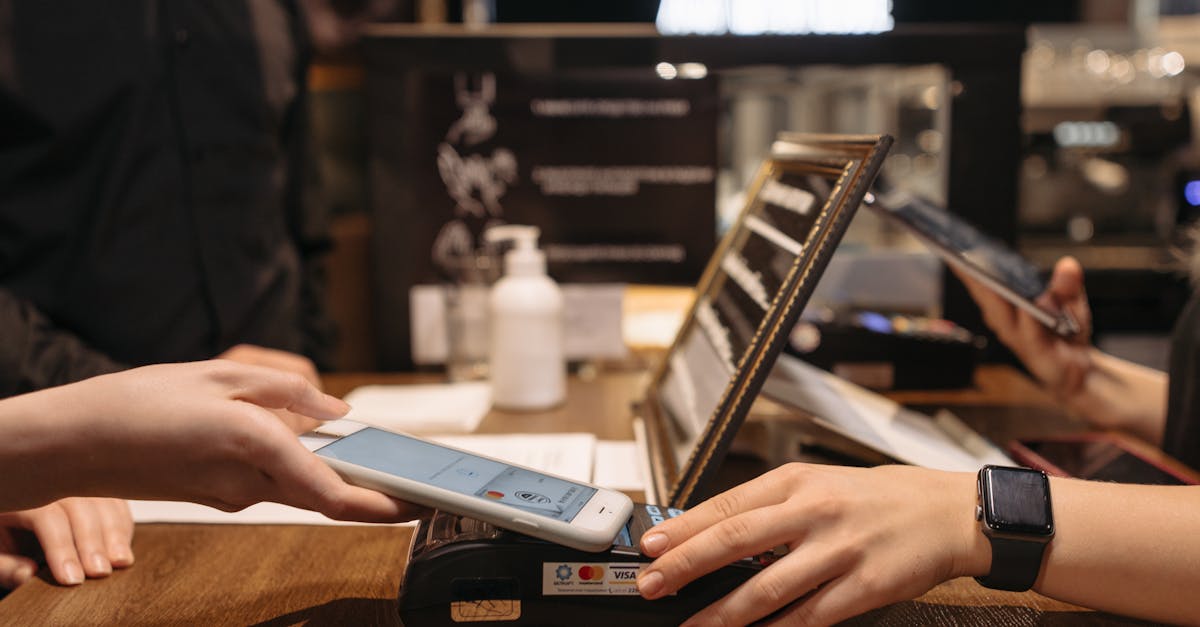Pioneering Digital Wallet Innovations
Introduction
In the age of digital transformation, financial transactions are increasingly moving from physical to virtual platforms. Digital wallets, or e-wallets, have emerged as a cornerstone of this evolution, reshaping the way people pay for goods and services. These electronic applications enable users to store, transfer, and manage money directly from their devices. But what's driving the rapid advancement in digital wallet technology? From enhancing consumer convenience to boosting transaction security, innovations in digital wallets are continuously evolving. In this article, we delve into how these innovations are making waves in the financial sector.
Advertisement
The Genesis of Digital Wallets
Digital wallets initially surfaced as a novel idea, aimed at replacing bulky traditional wallets with digital efficiency. In the late 1990s, services like PayPal spearheaded the concept of electronic payment systems. As smartphones gained popularity, digital wallets like Apple Pay and Google Wallet offered users the ability to store credit card information and make payments via contactless technology. Initially, these services were met with skepticism about security and usability, but with technological advancements, they swiftly gained consumer trust and adoption.
Advertisement
Innovative Features Enhancing User Experience
Modern digital wallets are not limited to just storing payment information—they offer a plethora of features aimed at maximizing user convenience. Some incorporate biometric authentication, such as fingerprint or facial recognition, adding an extra layer of security. Additionally, real-time transaction alerts keep users informed of every expenditure. Advanced AI algorithms personalize the user experience by categorizing expenses and offering insights on spending habits. Loyalty programs integrated within wallets further enhance consumer satisfaction by providing cashback and reward points.
Advertisement
Security Enhancements in Digital Wallets
With the rise of cyber threats, security remains a paramount concern for digital wallet users. Innovations in encryption and tokenization have significantly reduced the risk of data breaches. Tokenization replaces sensitive card details with a unique identifier, ensuring that personal information remains protected during transactions. Multi-factor authentication (MFA) adds another layer of security by requiring users to verify their identity through multiple steps before accessing their wallets. These measures, combined with regular security updates, make digital wallets a secure alternative to traditional banking methods.
Advertisement
Drive Toward Financial Inclusion
Digital wallets are playing a crucial role in fostering financial inclusion, particularly in emerging markets. They provide access to financial services for the unbanked and underbanked populations who lack access to traditional banking infrastructure. By simplifying the process of sending and receiving money, digital wallets empower individuals and small businesses to participate in the digital economy. Innovations such as QR code payments and integrations with social media platforms have further expanded the reach of digital wallets, enabling wider financial access and inclusion.
Advertisement
Integration of Cryptocurrencies
The integration of cryptocurrencies into digital wallets represents a frontier of innovation in the financial sector. As the popularity of cryptocurrencies like Bitcoin and Ethereum grows, digital wallets have responded by offering secure storage and transaction functionalities for these digital assets. This integration allows users to seamlessly manage their fiat and crypto currencies from a single platform. Moreover, digital wallets are exploring the potential of blockchain technology for even greater efficiency and security in conducting transactions.
Advertisement
Regulatory and Legal Challenges
As digital wallets proliferate, they encounter numerous regulatory and legal challenges. Governments globally are formulating policies for digital payments to ensure consumer protection and prevent fraud. Compliance with Anti-Money Laundering (AML) and Know Your Customer (KYC) regulations imposes stringent requirements on wallet providers. Navigating these complex legal landscapes is crucial for the expansion of digital wallets. Industry collaboration and adherence to international standards are vital for overcoming these obstacles and paving the way for wider adoption.
Advertisement
Combining Digital Wallets with Internet of Things
The fusion of digital wallets with the Internet of Things (IoT) is unlocking new potentials for seamless transactions. IoT devices equipped with sensors and connectivity can engage in autonomous payment processes, enhancing user experience. Imagine an interconnected world where your smart refrigerator automatically reorders groceries and makes payments through an integrated digital wallet. While the field is nascent, strategic partnerships between tech companies and financial service providers are fostering innovative solutions that will redefine consumer interactions with digital payments.
Advertisement
Predictions for Future Growth
The future of digital wallets is poised for exponential growth, driven by continuous innovation and consumer demand for convenient, secure transactions. We anticipate further integration of Artificial Intelligence and machine learning to enhance analytical insights and predictive financial management. Augmented Reality (AR) technologies may expand the user interface experience, enabling even more intuitive interactions with financial data. Moreover, as 5G technology rolls out globally, the enhanced connectivity will pave the way for real-time, high-speed transactions across an even larger array of devices.
Advertisement
Summary and Conclusion
The journey of digital wallets from a niche product to a ubiquitous tool within the digital economy illustrates the transformative power of technology in financial services. With innovations continuously reshaping security, convenience, and accessibility, digital wallets have positioned themselves as integral components of modern commerce. As adoption rates climb and technology evolves, there are vast opportunities and challenges ahead. Ensuring that these tools remain inclusive, secure, and user-friendly will be key to their sustained growth. The future of digital wallets is fundamentally bright, poised to redefine the financial landscape.
Advertisement








